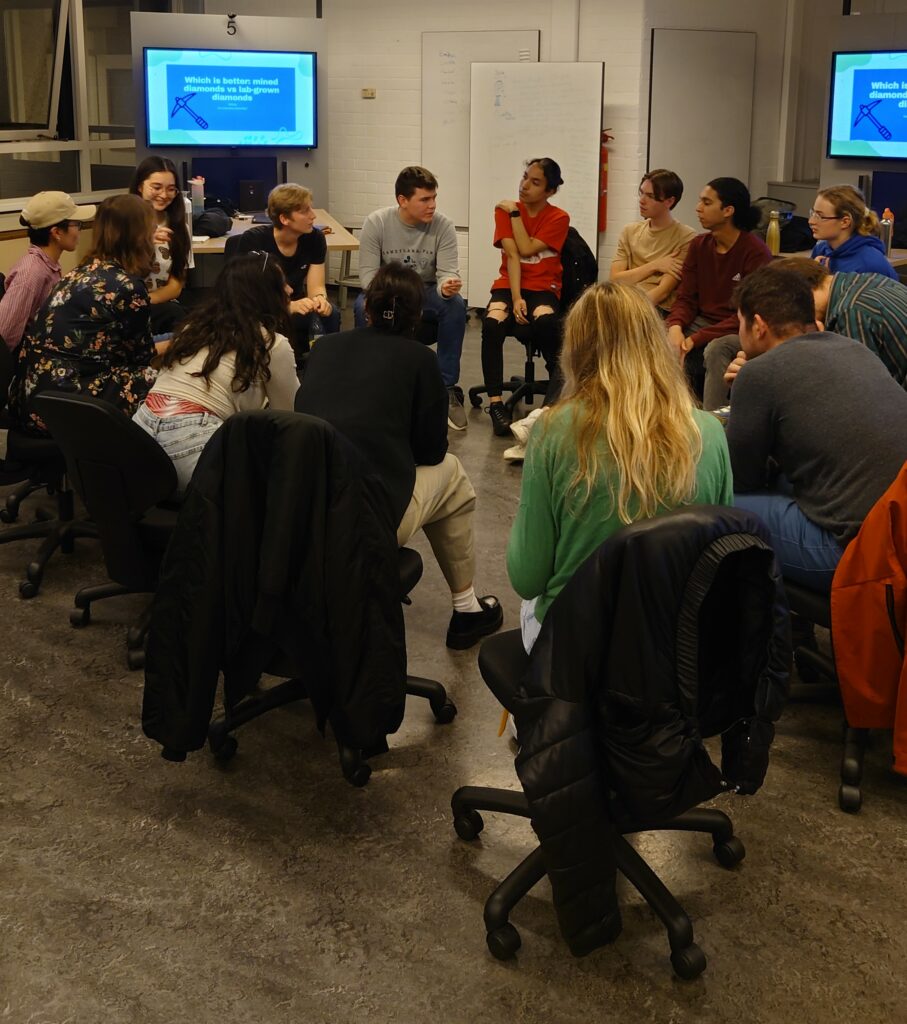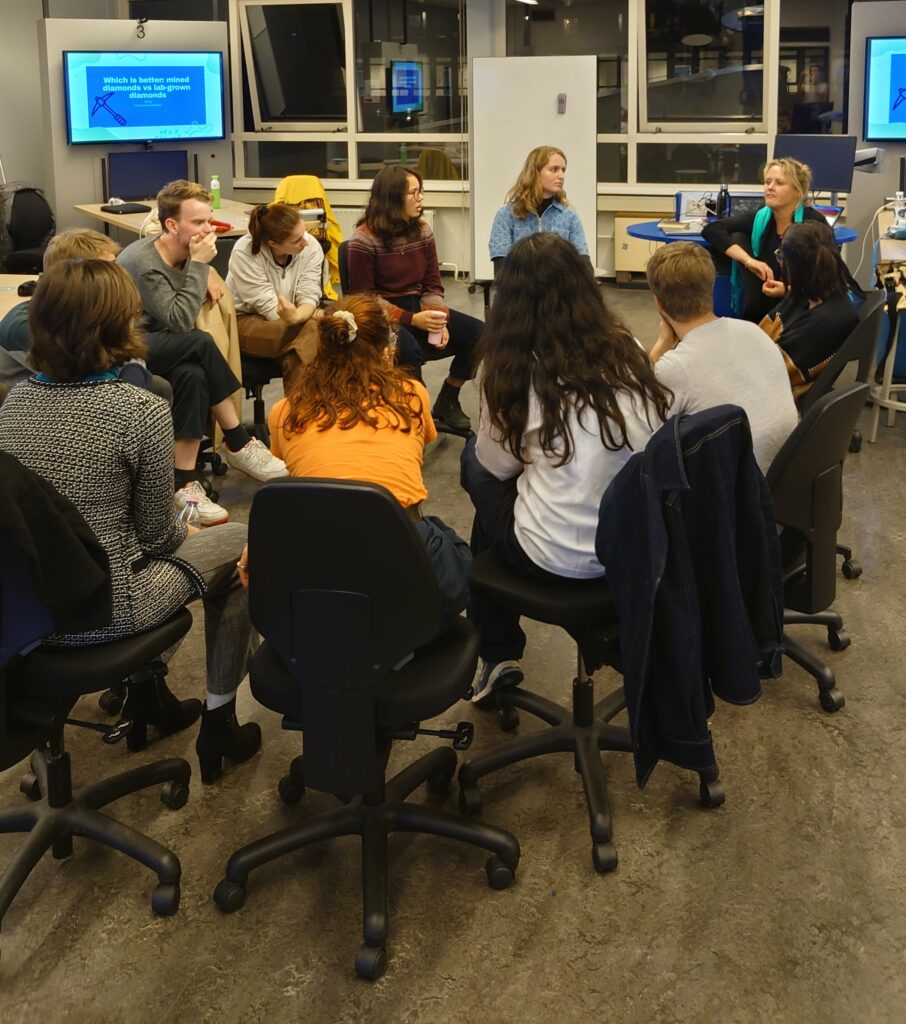The change from a world where fossil fuels account for around 80% of the energy supply to a green energy future is dependent on the mining industry. Nevertheless, the mining industry holds a negative image in the eyes of society. Several prejudices are dominating the image of the mining sector. On the 12th of October, we, the students of the Da Vinci Program, had the honor to have an open discussion with Kirsten Hund regarding responsible mining and her view and role in it. We all learned a great deal from it.
Guest speaker – Kirsten Hund
Kirsten Hund, the head of Carbon Neutrality at De Beers Group, has been active in the sustainability sector since 2002. De Beers Group is a company that is focuses on the exploration, mining, sorting, sales, grading, and marketing of diamonds. Among other things, Kirsten Hund has worked on the development of the civil society network, on resource extraction and environmental- and social-impact assessment. She has worked all around the world, from Johannesburg, South Africa to New York in the United States. She mentioned to us that a lot of what she learned has been from all places and jobs along the way. Currently, her goal is to achieve Carbon Neutrality across all of De Beers operations by 2030.
The discussion
For the open discussion three statements were presented on which students were assigned to be in favor of or against. The statements were: ‘Can mining be done sustainably?’, ‘Can a “sustainable mining” business model be environmentally good or is it greenwashing?’ and ‘Could carbon offsetting be a solution for sustainable mining?’. Our guest speaker would beforehand explain how the mining industry operates and what the statements and definitions include in detail. The side students had to represent were on occasion not the opinion they had, but exactly that aspect of the discussion helped students understand what an issue includes from different sides.
Following the statements, a discussion evolved in which the possibility of responsible mining in the future was questioned. Both the students and guest speaker presented their opinions and arguments. A lot of interesting insights into the issue were shared. To me personally, this benefited me in drafting my opinion on responsible mining as it provided me with different views and more information into the matter. This is in alliance with the educative goals of the Da Vinci Project, for students not to draw conclusions right away and to have a more open-minded approach to problems and situations. I would like to thank Kirsten Hund once more for stirring up our curiosity by enriching us with her knowledge. But to answer her question on who had learned more from this event? I don’t know.


This article has been written by Job Canoy, Da Vinci Project student

